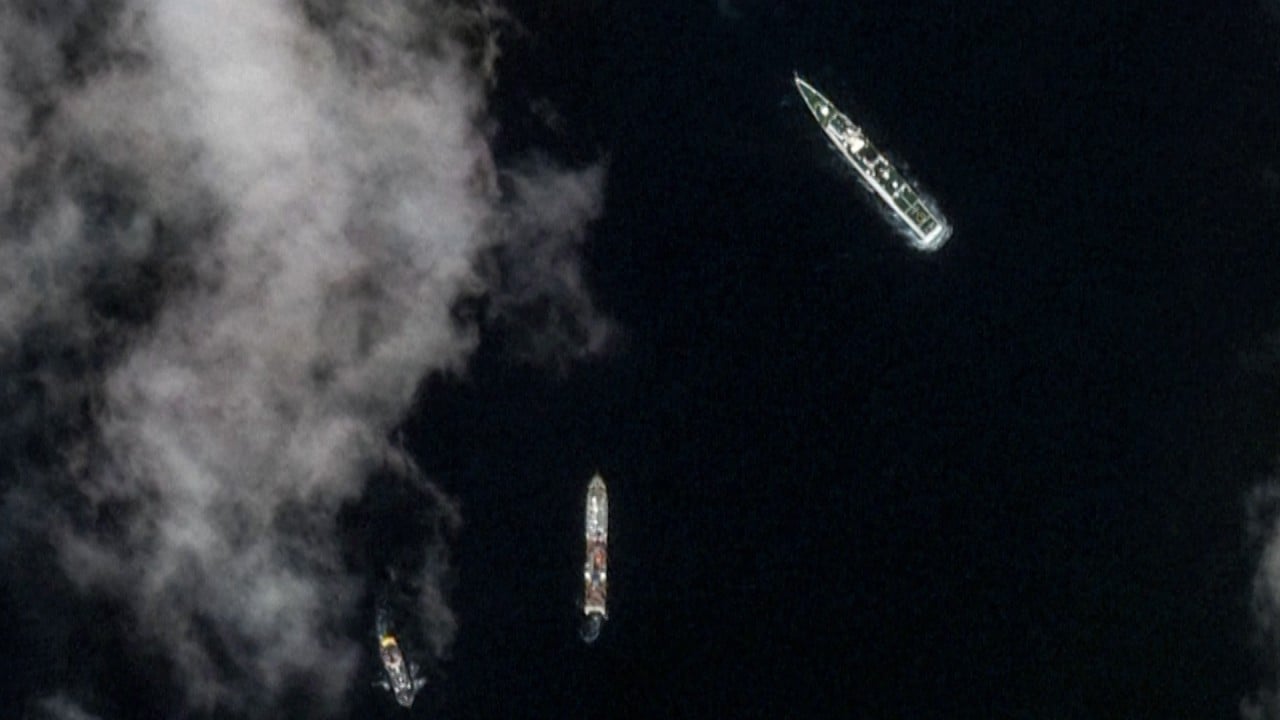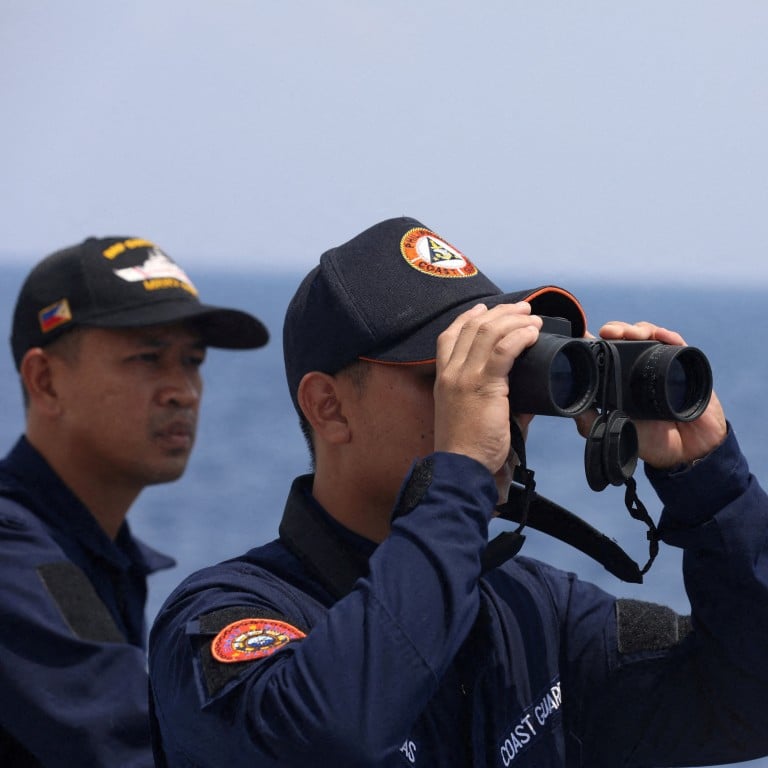
Controversial enlistment of 36 Chinese nationals by Philippine Coast Guard auxiliary unit can be traced to softer past stance on Beijing
- The unit is said to be the ‘secret weapon’ of the Philippine Coast Guard, which is often involved in dodging Chinese vessels in the South China Sea
- Uneven recruitment rules, boat ownership interests and past changes in foreign policy on China could have enabled the Chinese nationals to enter the PCGA, observers say
A revelation by the Philippine Coast Guard that its auxiliary unit contains 36 Chinese nationals on its active roster of civilian volunteers has aroused suspicions of spying amid maritime tensions between Manila and Beijing.
Admiral Ronnie Gil Gavan last month told lawmakers he had already “delisted” the individuals in question and that they posed no national security threat to the Philippine Coast Guard Auxiliary (PCGA), but irate congressmen had demanded for “treasonous” heads to roll.
The unit is said to be the “secret weapon” of the Philippine Coast Guard (PCG), which is often involved in dodging Chinese vessels to resupply a military outpost in the disputed Second Thomas Shoal in the South China Sea.
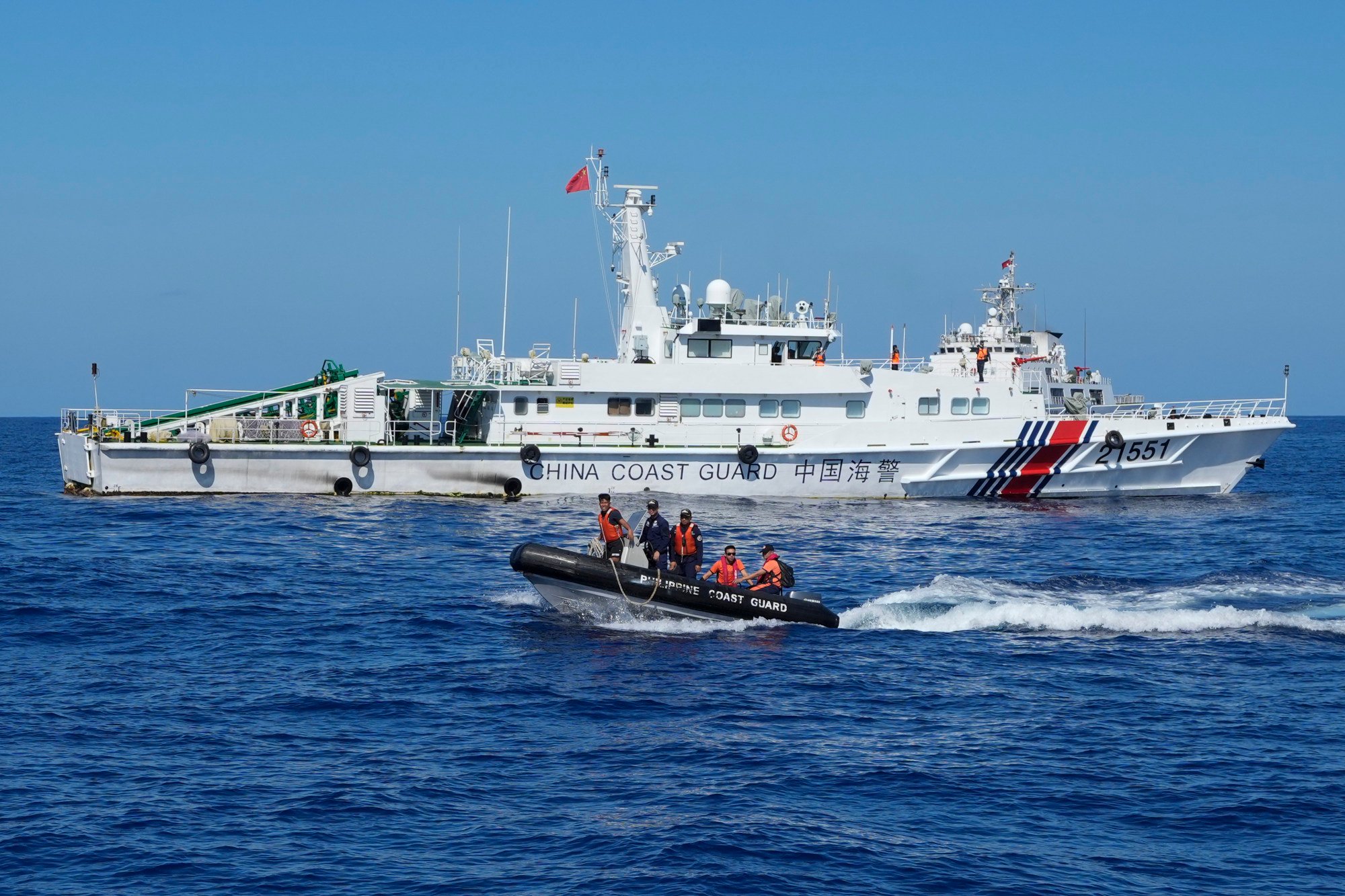
Observers and individuals familiar with the matter told This Week in Asia that uneven recruitment rules, possibly self-interest in boat ownership and past changes in foreign policy on China could have enabled the Chinese nationals to enter the PCGA.
Gavan, who assumed his post last October, earlier said at the March 20 hearing: “We did conduct an investigation. We went through intelligence and national security agencies of the [government], and we have delisted 36 of them.
“We did check on their compliance and standards set [for them], and we found out that they did not comply, so we initiated their delisting. They are now delisted.”
Gavan said volunteers were accepted into the PCGA “provided that they have secured national security clearance”.
Congressman Robert “Ace” Barbers, however, remained concerned as he pointed out at the same hearing: “Are foreigners like the Chinese, especially the Chinese, allowed to become members of the auxiliary force of our coastguard?
“These Chinese served as auxiliary members of our coastguard for two, three years … They may be performing spying duties in the guise of being auxiliary force members.”
The tiny island that embodies Manila’s David vs Goliath South China Sea struggle
A source in the maritime industry, who spoke on condition of anonymity, told This Week in Asia the PCGA had existed as far back as 50 years ago under the rule of Ferdinand Marcos Snr. At the time, he said, Filipino and foreign yacht owners found it hard to register their yachts locally because the rules were the same for such vessels and for 20,000-tonne tankers.
“In other words, it would probably cost more than what you paid for the yacht to register. You also had to pay duties and taxes.”
The source said this was why boat owners would register with the PCGA “because then they could paint a number on their boat that warned the Coast Guard they were a member of the auxiliary”.
It was simply to prevent extortion, the source said, while also accusing the PCG of being “corrupt” and having recruited former police officers who had been terminated by the force.
The source said there was speculation in the maritime industry that those who joined the PCGA could “basically buy their admiralty rank for a fee”, but added the donations went to the new recruit’s squadron to fund its programmes.
PCG spokesman Rear Admiral Armand Balilo said the PCG had in 2018 publicly disowned an individual who was recruiting members for money. However, he said it was “not true” that dismissed policemen were being hired, adding it was his first time hearing such allegations of dismissed officers on the roster.
In 2019, according to a news release, then PCG commandant Joel Garcia swore in 110 former policemen and soldiers who had been “separated with honour”.
Today, the PCG has a dual function. It is an armed and uniformed civilian agency whose commandant reports directly to the Department of Transportation and Communications secretary in peace time and to the defence secretary in wartime.
In 2009, the Coast Guard Law was revised and for the first time, it recognised the role of the PCGA as “a civilian volunteer organisation under the direct control and supervision of the PCG Commandant”.
Among its functions were to “assist the PCG in the promotion of safety of life and property at sea. The preservation of the marine environment and its resources, the conduct of maritime search and rescue, the maintenance of aids to navigation and such other activities that enhance maritime community relations which include civic action”.
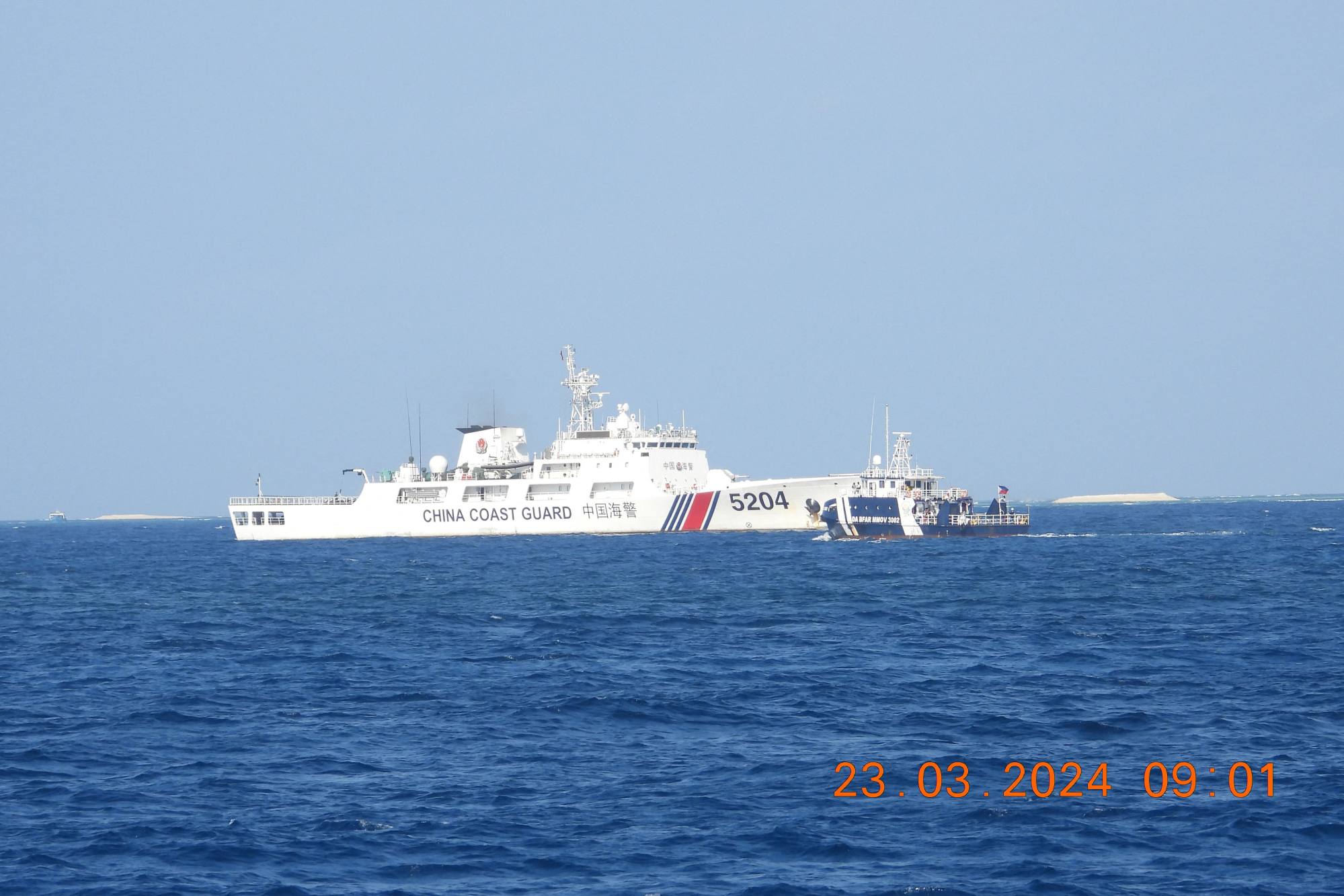
Balilo told This Week in Asia a number of foreigners had long been members of the PCGA, “some more than 20 years”.
He recalled that the Chinese volunteers had been recommended for membership by Filipino-Chinese businessmen, and they had joined the PCGA Executive Squadron and Civil Relation Service Special Support Squadron. Based on its Meta page, the Executive Squadron appears to consist of prominent personalities who include politicians and government officials.
“The [Chinese] submitted police clearance, National Bureau of Investigation [clearance], and I think passports showing [Bureau of Immigration] clearance.”
He stressed that “their participation was limited to civic action like donation for relief goods and medical missions. They have no participation in any PCG operations and neither were they given access to the restricted areas in the [PCG] headquarters”.
However, when new PCG Commandant Gavan imposed an additional requirement for national security clearance, the mainlanders were apparently unable to submit that.
“We are very strict insofar as security is concerned,” Balilo said.
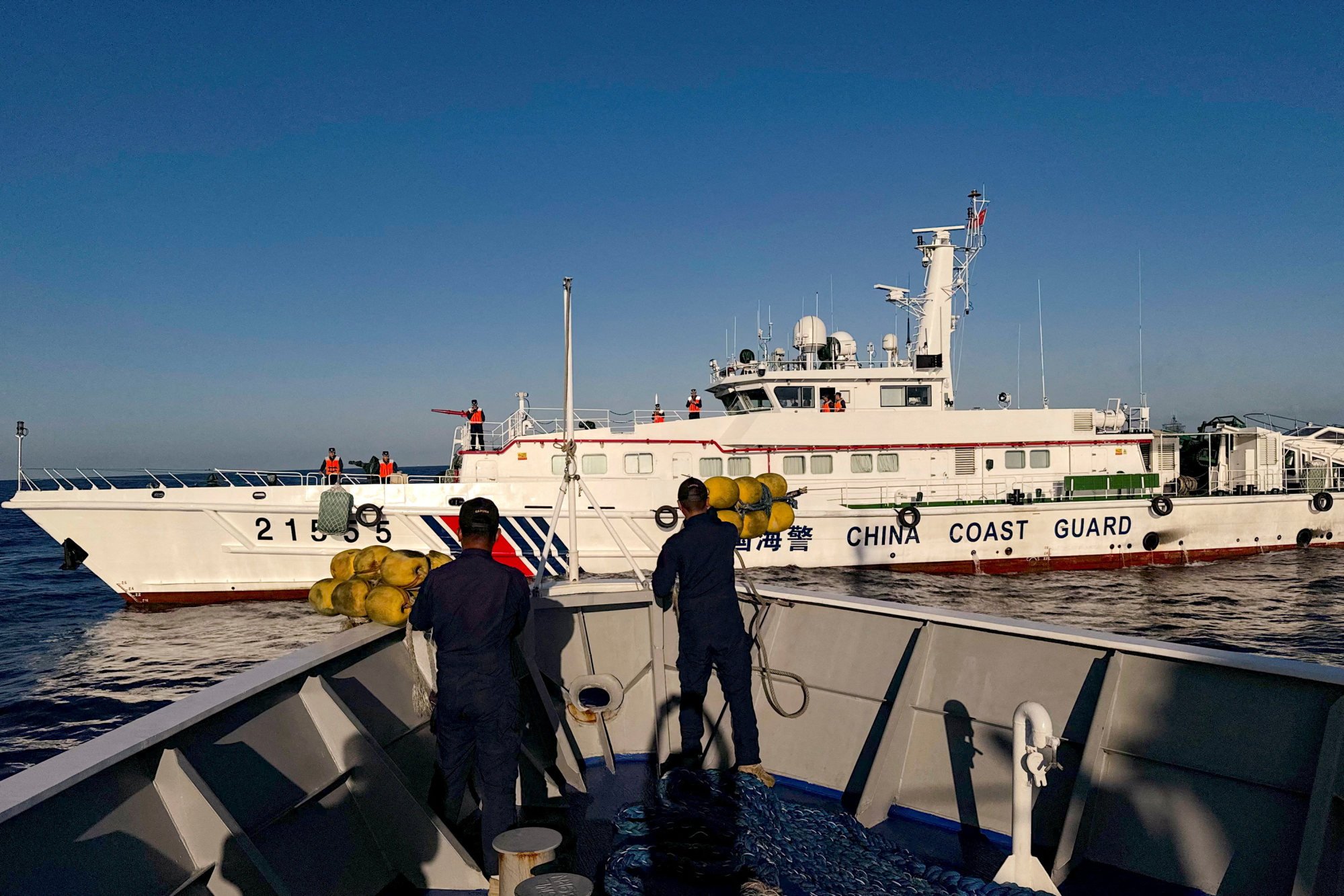
‘No different from a rotary club’
Balilo had said no PCGA member was involved in the recent hacking incidents that affected the PCG’s social media pages on Meta and X. He also said there was “no strong basis” to accuse them of spying.
Balilo placed the number of PCGA at around 20,000 volunteers now consisting of businessmen, government officials, youth and fishermen.
“People who actually own boats are in the minority” in the PCGA, noted businessman Rafal “Apa” Ongpin, former president of the Manila Boat Club.
Ongpin, however, saw no problem with foreigners, including Chinese nationals, joining the PCGA. “There’s no problem with that. It’s a civic organisation, they do charity drives. It’s no different from a rotary club.”
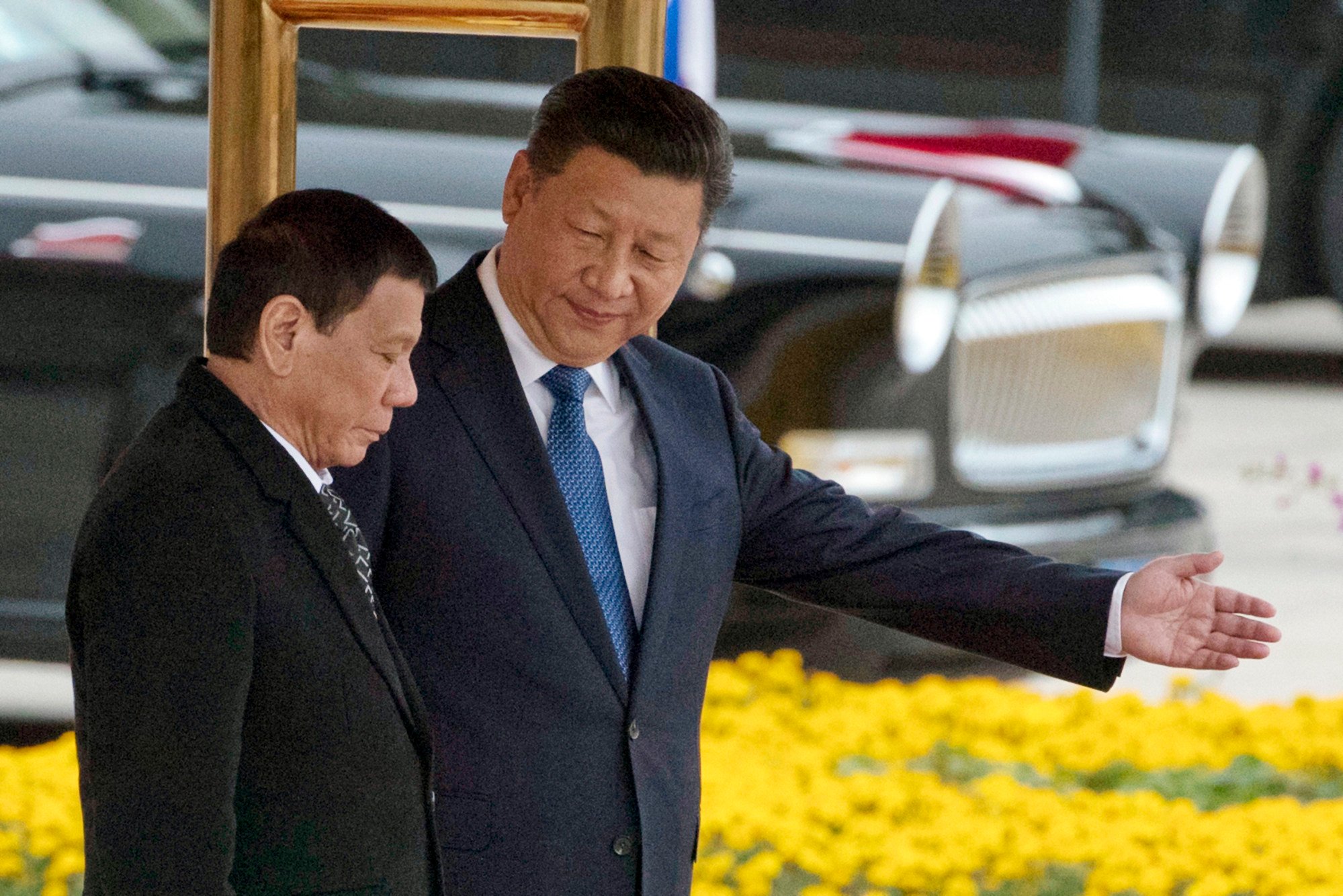
The entry of more Chinese nationals into the PCGA could also be traced to former president Rodrigo Duterte’s pivot to China.
During Duterte’s state visit to Beijing in 2016, he had committed to President Xi Jinping “to enhance cooperation between their respective coastguards”. Both had signed a memorandum of understanding on the establishment of a Joint Coast Guard Committee to “further deepen cooperation by conducting port visits, joint exercises, personnel exchange and training, and utilisation of hotline communication”.
Two subsequent meetings of the joint committee produced two proposals – to put up a direct hotline between the two coastguards and for Manila to send a coastguard attaché to Beijing.
However, then Philippine foreign secretary Teodoro Locsin Jnr rejected the notion in 2020 with a warning that “a separate coastguard attaché means we concede exclusive sovereignty over our coastal waters so they are now subject to discussion instead of automatic protest”.


